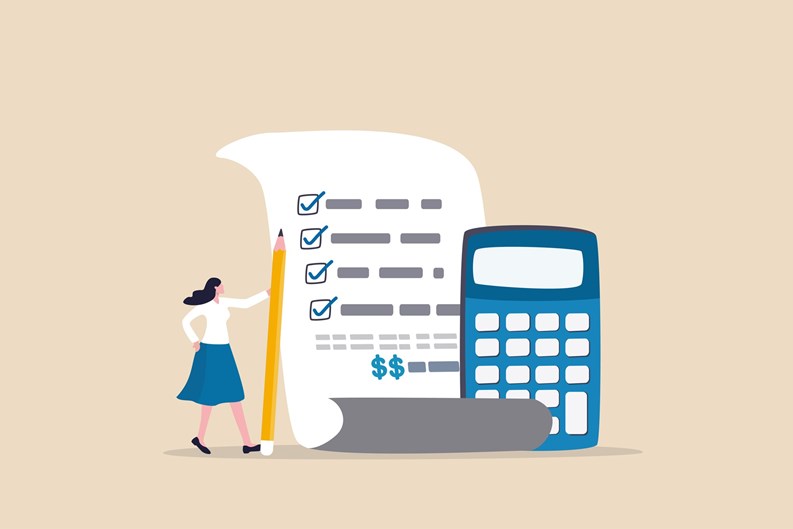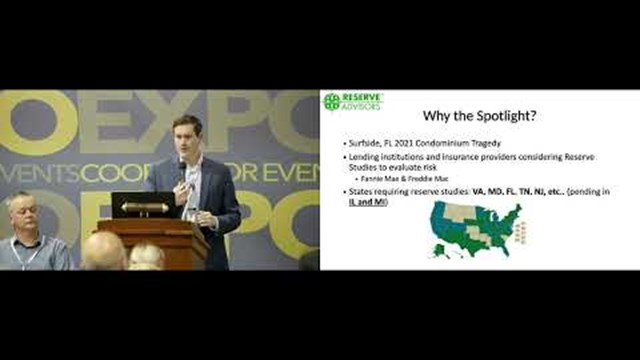Congratulations! You’ve just been elected to the board of directors, and given your first monthly financial packet. Like many new board members, your first thought may be, “This is so confusing. Glad I’m not the treasurer - I don’t have to understand the association’s financial information!”
The truth is that every member of the board has a fiduciary responsibility over your community’s financial information, and is responsible for safeguarding the assets of your association. No matter your role on the board, you need to understand your plan for the current year (which is your budget), your strategic plan for the future (which is your reserve study) and your financial information, so that you can make sound business decisions on behalf of your building or association.
Basis of Accounting
In order to understand your community’s financial information, every board member must first understand your community’s basis of accounting: is it cash, modified cash, or accrual basis of accounting?
The cash basis of accounting is similar to a checkbook, recognizing income when received, and expenses when paid; the only asset on your balance sheet is cash. A modified cash basis - which many management companies use - recognizes expenses when paid, but can recognize income when billed instead of only when received. This method also records loans as a liability, and capitalizes property and equipment that the association has title to as an asset on the balance sheet.
The accrual basis of accounting recognizes income when billed or earned, and expenses when incurred. Since this shows the association’s actual financial position at a specific date, this is the preferred accounting method for buildings and HOAs. However, since monthly financials are typically sent out too late to record the accounts payable each month, it’s difficult to run an association on a full accrual accounting basis - so most monthly financials are on the cash or modified cash basis.
If your association’s monthly financials are not on the accrual basis, then your association should have an annual third-party financial statement prepared by a CPA. Please check your bylaws and your state requirements for specific reporting requirements. Also, your association’s lender(s) may require a CPA accrual basis financial report as well. The CPA’s financial report requirement could be a compilation, review, or audit, and could also mandate that financial statements must be prepared using generally accepted accounting principles (GAAP). A GAAP financial statement must have a Balance Sheet, Statement of Income and Expense, statement of cash flows and footnote disclosures.
Your Monthly Financial Packet
Your monthly financial packet is the key to preparing your budget and making sound business decisions for your building or association. However, many board members receive their packet and either do not look at it, or look at it without understanding which parts of it are most important and should be reviewed. The financial packet should include the following items: a balance sheet and income and expense statement, accounts receivable aging, operating and reserve bank statements and reconciliations, cash disbursements and cash receipts journals and a general ledger. Some also include copies of the invoices paid during the month and an accounts payable report if the community operates on the accrual basis of accounting. Let’s now discuss the importance of each of these reports.
General Ledger
This is one of the most important financial reports. The general ledger shows the details of your association’s expenditures and income each month. Do these income and expenditures seem correct, especially large capital expenditures compared to what the board has approved? Review the accounts in the general ledger to make sure that the classification of expenditures and deposits is correct. Review the activity for the month in your cash accounts - especially to confirm that reserve expenditures were paid out of the reserve cash account, and that reserve monthly income was deposited into the account. Also, determine if there were transfers between the reserve and operating cash accounts, and verify that the numbers agree with your bank statements and reconciliations.
Accounts Receivable
Reviewing your aged accounts receivable each month to monitor your delinquent receivables is so important to your cash flow. Does your association have a collection policy, and are you following it? Review your declaration and bylaws to ensure you are in compliance with your association’s policy. If your association has budgeted for bad debts, compare your budgeted amount to your actual write offs. If your association is on a modified cash or accrual basis, ensure the total of the detailed aged accounts receivable report agrees with the amount of the accounts receivable and prepaid assessments on the monthly financial balance sheet.
Check Register & Cash Receipts Journal
Review the check register to ensure that all of the checks are in numerical order by check number. Review the payees to ensure that these are approved vendors. If you have an approval policy for expenditures over a certain dollar amount, review these payments to make sure that they were approved. If any invoices are included in the monthly financial packet, review them to ensure the invoices are in fact for your association, and compare the invoice details to the cash disbursements journal to make sure the correct amount was paid to the correct vendor. Review cash receipts for any unusual deposits, and trace the receipts to the bank statement and the bank reconciliation to verify that all deposits cleared in the month, or are in transit. Trace the amounts on the receipts and disbursements to the activity recorded in the general ledger for the corresponding cash accounts.
Bank Statements & Reconciliations
A bank reconciliation squares the monthly ending balance on your association’s bank statement with the month-end cash balance on the general ledger and balance sheet. Review the reconciliations with the corresponding bank statements. Review the cleared checks for the check number, payee and amount. Review outstanding checks, and inquire as to why they are still outstanding. Items older than a month should be investigated. Review deposits in transit. All deposits in transit at the end of each month should clear at the beginning of the next month. If you have transfers between accounts, ensure that the funds taken out of the one account did in fact get deposited into the other account - and if not, inquire as to why it’s still outstanding. Finally, make sure the reconciled balances agree with the cash in the general ledger and financial statements.
Accounts Payable Report
Review this report to determine which invoices have not been paid by the end of the month, and why. Review this report to determine if there are any reserve or operating fund projects that have been completed but not paid, or if progress payments are due on projects, but not paid by the end of the month.
Financial Statement – Balance Sheet
The balance sheet shows your association’s financial position on a specific date. As discussed already, the assets and liabilities on the balance sheet should agree with the monthly financial reports. If they don’t, review the general ledger accounts to determine if there was an error. If the balance sheet is on the accrual basis or modified cash basis, review any additional assets or liabilities and inquire as to why they are recorded.
Financial Statement – Income & Expense Statement
In contrast to the balance sheet, which is more of a financial snapshot, your association’s income and expense statement shows financial activity over a specific period of time. First, each month should include a review of any unusual income or expenses that have not been budgeted for. Next, compare the actual income and expenses each month and year-to-date with your budget. If there are any material differences, determine the reason for the discrepancy by reviewing the general ledger for these specific income and expense accounts. It is much easier to compare actual to budget if your financials are on the accrual basis, since your budgets are prepared based upon earned and/or billed income and expenses incurred. Lastly, review the reserve fund expenses and compare them to your reserve fund projects. Verify that these expenditures were paid by the proper fund cash by reviewing the reserve fund cash account in the general ledger. Understanding the income and expense statement will also help with the preparation of the budget for the next year.
Remember, the entire board is responsible for your building or association’s financial wellbeing, so having an active, well-informed board is key. If your entire board is reviewing the financial package, the entire board will have a better understanding of your building or association’s financial information, and thereby be better prepared to make important decisions to support your community’s financial success.
Steven Silberman is a Certified Public Accountant and partner with PBG Financial Services, PLLC, based in Northbrook, Illinois and serving the greater Chicagoland area.










Leave a Comment